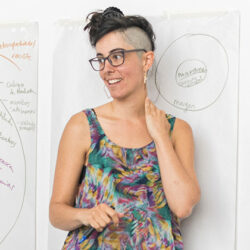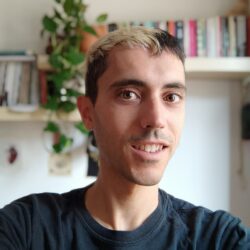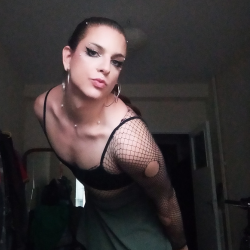skills, insights, and practices for creating transformative teams and effective collaborations.
Working with others is not always easy. It can feel frustrating, draining and unproductive. Meetings drag, personalities clash, power conflicts arise, chaos reigns and all this gets in the way of achieving what the group or organisation set out to do at the beginning. But collaboration is key to collective agency and empowerment. It’s a basis for effectiveness, a crucial means of embodying our values, and it can bring forth emergent and creative qualities that alone we could barely imagine. Collaboration is not only a root of social transformation, it also provides a vital context for individual transformation, enabling us to share and live out our deepest values.
This training will help you to collaborate, communicate and make decisions effectively. It will help you to draw out the best in yourself and others, stay in healthy relationships, build teams based on shared values – and get things done!
*Note: This training will be made accessible for participants with weakened immune systems, so there will be a covid protocol in place which will include wearing a mask both on your travels, and indoors during the training, plus some covid testing, among other things. You can check the full protocol here. If you are not immunocompromised yourself, we will expect you to follow these guidelines in solidarity with others.
In whatever way we envisage contributing to the wellbeing of our world, for most of us it is going to mean working with others. It is going to mean collaborating. Collaboration is key to collective agency and empowerment. It’s a basis for effectiveness, a crucial means of embodying our values, and it can bring forth emergent and creative qualities that alone we could barely imagine. And collaboration is not only a root of social transformation, it also provides a vital context for individual transformation, enabling us to share and live out our deepest values.
But working in groups is not always easy. It can feel frustrating, draining and unproductive. Meetings drag, personalities clash, power conflicts arise, chaos reigns and all this gets in the way of achieving what the group or organisation set out to do at the beginning.
This training will help you to learn how to collaborate, communicate and make decisions effectively. It will help you to draw out the best in yourself and others, to stay in healthy relationships, build teams based on shared values – and get things done! This course and related resources provide you with the tools and know how to make your group effective, fun, brilliant, and inspiring.
Effective collaboration requires an understanding of how groups work, it involves learning the skills for organizing and structuring our work together, it also requires deepening self-awareness, the honing of our ethical sensibility and the means to transcend our limiting habits in order to bring forth more helpful and creative capabilities. So this course integrates practical skills and approaches to group and organisational development with reflective and group practices that make the personal-interpersonal interface a truly creative place to be.
Through a blend of participatory education and immersive learning you will learn how to:
This course is practical and participatory and offers several opportunities for you to explore group dynamics in real time with other group participants using hands-on activities, role play and other experiential methodologies. It also provides individual and collective review spaces to reflect on what came up at a personal and group level in order to learn beyond theory. If you have any questions about this feel free to reach out to us at events@ulexproject.org .
Who is it aimed at?
Anyone involved in socially engaged action addressing ecological, political and social justice issues. We embrace a broad definition of activism, including: Resistance – action preventing further damage to ecosystems and social justice; Renewal – action focused on developing and creating alternatives for healthier societies and communities; and Building Resilience – action supporting increased resilience in communities to weather the uncertain times ahead.
The main spoken language on the course will be English.
For accessibility and venue information see here.
This course will be made accessible for immunocompromised people. More information on the covid protocol is available here. Please contact us with questions or concerns.
In the solidarity economy:
(See details of our approach to radical economics here)
Contact us
to apply

Location:
Neus has been passionate about education since she was 8 years old and went dumpster diving in teachers’ recycling bins for worksheets to help other students learn at break-time. They moved from Castellon to Scotland to study Community Education, with a focus on youth work and adult education, where she co-founded The New Leaf Co-op, a successful workers’ co-op in Edinburgh. Whilst there Neus developed their understanding of how productivity meets good working conditions meets overturning the food system meets resourcing the commons with resilient and democratically managed capital. These passions now underpin her multiple roles at Ulex; from team culture and coordination to training and writing funding applications.

Location:
Cori is an anarchist activist based in Catalonia. He started getting involved in radical social movements when he was a teenager. He is passionate about helping the community in topics such as housing welfare, squatting, neighbourhood mutual aid networks, and anti-oppression and queer-feminist movements. During the last years, he has been taking courses on group facilitation to increase his knowledge on human relationships and accompanying processes for both groups and participants. He is currently collaborating with Ulex as a course organiser and facilitator.

Location:
Lu (she/her). I have a passion for group dynamics and fractal processes, landed intersectionality, interconnectedness, and prefiguration. I bring with me my biologist background, Process Work Facilitation methodology, and organising experience. I’m currently based nearby Madrid, discovering new pathways through community living. I love gardening and aerial silks.

Location:
An Maeyens (she/her) is a facilitator and trainer with over two decades of experience in grassroots movements. She specialises in creative, inclusive agenda design and brings deep expertise on group culture, power dynamics, and transformative learning. Starting of in the anti-globalisation movement she has trained thousands in civil disobedience, supported international coalitions, and developed multilingual training programmes and toolkits. Her work spans movements, cultures, and countries, guided by a commitment to care, accessibility, and leaderful organising.

Location:
Ari’s activism began in 2002, at age 16, as a Bosnian refugee in Canada, where they founded and coordinated a group for LGBTIQ high school students and allies. They were a co-founder and leader at kolekTIRV in Croatia and Trans Network Balkan, involved in community organizing, advocacy, program management, team coordination, capacity building, education, media work, campaigns, events, fundraising, etc. In 2024, they joined the Supervisory Board of the Croatian Trade Union Collective of United Precarious Workers and Activists (SKUPA).
Beyond the Balkan region, Ari served as a Board member at Transgender Europe (TGEU), where they held roles as Secretary, Treasurer, and later Co-chair. They have also been a trainer with the Center for Artistic Activism and served on the Advisory Committee and since 2022 as a Community Care Facilitator at FRIDA — The Young Feminist Fund. Since 2024 they are the Operations Manager at Global Philanthropy Project.

Location:
Sergio (all pronouns) was born in Romania and migrated to Germany in the early 2010s. In the past, he was a social worker with homeless people and a social consultant for Eastern European migrants for various organisations. Trained as a filmmaker, he spent two years making a documentary about the ‘civic reawakening’ in Romania and the waves of protest it brought with it. In connection to this, Sergio is currently co-steering the development of an online open-source participative knowledge production platform on activism in Romania. Over the past nine years, Sergiu has offered his skills to various journalists, grassroots collectives and campaigns, mostly working within the labour rights, climate justice, international solidarity and anti-authoritarian movements in Germany and Romania. Nonetheless, his biggest focus since 2020 has been his work as an organiser with the anarcho-syndicalist Free Workers Union, where he focuses mostly on organising Romanian migrant workers on construction sites, in factories and in the agricultural field.

Location:
Linzy Na Nakorn is a movement director, politicised somatics practitioner, community organiser and facilitator. For the past decade she has been facilitating movement, body work and creating theatre, dance and participatory performance that advocates for and organises with communities in pursuit of housing, disability and racial justice. Her movement practice focuses on trauma-informed approaches to building resilience, capacity and joy via way of the body for personal, interpersonal and community sustainability. Linzy was a Co-Director of The Big Ride for Palestine in partnership with The Gaza Sunbirds, Native Woman Ride and Middle East Children’s Alliance; using cycling as a tool for mobilising active solidarity and in support of campaigning for the rights and self-determination of the Palestinian people. Linzy is part of a UK network of activists and artists advocating for Radical Care – supporting organisations, researchers and institutions to work towards system change in societal approaches to labour, leadership and access.

Location:
Jeroen (he/him pronouns) has been involved in grassroots social movements for more than two decades now, starting back when he was fifteen. Throughout the years the fights for “climate justice” and “migrant justice” have been consistently on top of the list of struggles that make his heart beat faster. A key transformative moment for Jeroen was reading Paulo Freire’s Pedagogy of the Oppressed. Freire’s revolutionary pedagogy gave him a language to support the creation of emancipatory learning environments, rooted in a desire for collective liberation. Jeroen has also been exploring in depth Boal’s Theatre of the Oppressed and Joanna Macy’s The Work That Reconnects among other methodologies to build his trainer’s toolkit. Inspired by the liberatory possibilities of these traditions, he started an organization with a friend, LABO vzw, based in Belgium, where he has worked as a trainer and campaigner between 2013 and 2023.

Location:
Ella brings more than 10 years’ external experience working with not for profit and community based organisations across diverse themes including: advocacy for migrant communities; local community engagement in national policy making; and structural relationships between poverty and disenfranchisement, and education and poverty. Immersed in critical theory in her early 20s she brings a holistic and questioning approach, and is passionate about systemic solutions that centre relationship and interconnection between ecology and society. A long standing member of the collective, Ella has been part of the core team since the inception of the Ulex Project. Her work bridges facilitation, developing project partnerships, governance, strategy, operations, and project and programme evaluation. She has developed and overseen more than 70 partnerships with a range of different actors across European social movements.
Ulex: Latin (argelaga Catalan, gorse English) noun:
1. A thorny-evergreen flowering shrub, with a high capacity for regeneration and resilience. Its seedpods open in contact with fire and it reshoots from charred stumps. A successionary plant that grows well under challenging conditions. It improves soil fertility through nitrogen fixing, preparing the way for renewed biodiversity.
2. A traditional choice for igniting fires. Burns hot and bright.
3. A networked project adding nutrition and fertility to European social movements through training and capacity building. It kindles the realisation of social justice, ecological intelligence, and cognitive vitality.